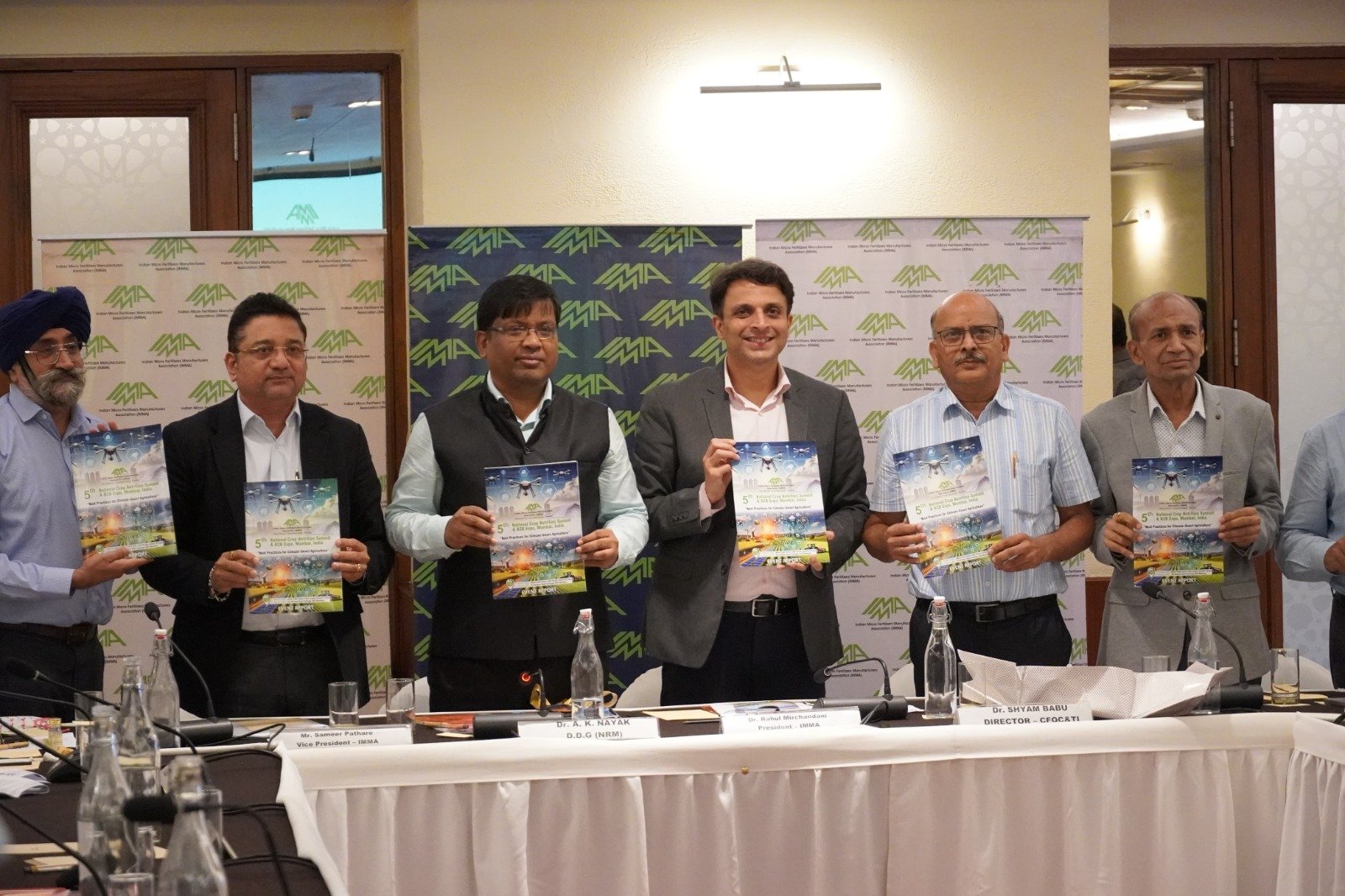
In a landmark policy engagement hosted at the India Habitat Centre, the Indian Micro-Fertilizers Manufacturers Association (IMMA) convened its Business-to-Government (B2G) Roundtable Conference under the banner “Innovate, Regulate, Elevate: Shaping India’s Fertilizer Future.” The event served as a catalyst for reimagining India’s non-subsidized fertilizer landscape, bringing together senior policymakers, scientific leaders, and industry stakeholders in a rare alignment of regulatory vision and entrepreneurial urgency.
Opening the dialogue, IMMA President Dr. Rahul Mirchandani struck a forward-looking tone. “This roundtable reflects our collective resolve to shape a fertilizer ecosystem that enables innovation, protects farmer trust, and aligns with sustainability imperatives,” he said. With India at the cusp of transitioning from a subsidy-driven model to a quality- and innovation-driven fertilizer economy, the event marked a decisive moment in charting the sector’s regulatory future.
Vice President of IMMA, Sameer Pathare, reinforced the day’s practical intent: “Each of the six points on today’s agenda represents a live issue affecting our members. Today, we took a decisive step toward collaborative problem-solving.”
One of the most pressing items on the agenda was the urgent need to update state-notified fertilizer grades. As India’s soils grow increasingly diverse in nutrient needs, experts urged for soil-specific formulations to be derived from open-source soil health data. Dr. A.K. Nayak, Deputy Director General of Natural Resource Management at ICAR, underlined that sustainable nutrient management must be based on efficacy data and not merely on labeling declarations. He emphasized that inclusion in the Fertilizer Control Order (FCO) Schedule must be guided by proven agronomic performance.
In a significant show of industry leadership, IMMA’s anti-counterfeiting initiative was spotlighted as a benchmark for voluntary regulation. Dr. Shyam Babu, Director at the Central Fertilizer Quality Control & Training Institute (CFQC&TI), Faridabad, acknowledged the initiative’s credibility and expressed commitment to co-developing on-site verification kits. His confidence was echoed by Dr. Debashis Mandal, Head of Soil Science at ICAR-Pusa, who noted that such collaborative quality checks could dramatically increase trust among farmers and input retailers.
A major policy thrust emerged around digital reform through a proposed “One Nation, One Licence” mechanism. Dr. Mirchandani advocated for a centralized, transparent, and paperless licensing repository that would eliminate redundancies and bring uniformity across states. The proposal found resounding support from major fertilizer and agri-input bodies including SFIA, FAI, BASAI, and BIPA, who agreed to jointly author a white paper to accelerate regulatory convergence.
Bio-stimulant regulation surfaced as another flashpoint. Following the enforcement of revised norms on June 16, transitional frictions have begun to emerge. Participants flagged the readiness gap between regulatory expectations and on-ground capacity, especially in state labs. Dr. Shyam Babu noted that labs and chemists are undergoing intensive upskilling, while industry stakeholders requested pragmatic interim measures, such as permitting the sale of pre-June 16 stock until expiration and allowing provisional approval for NABL-accredited private labs until state facilities become fully operational.
The roundtable also addressed the criminalization of procedural violations in the non-subsidized segment. Dr. Mirchandani proposed a clear legal distinction between major and minor violations, calling for compounding provisions under the Essential Commodities Act (ECA). Officials present responded positively, indicating readiness to consider IMMA’s proposals in upcoming inter-ministerial deliberations.
IMMA took a bold stance by recommending that non-subsidized fertilizers be delisted from the purview of the ECA. “There is no longer a shortage of fertilizers or food in India,” Dr. Mirchandani argued. “The Act has served its historical purpose, but now its punitive clauses deter private innovation and market entry. While subsidized fertilizers may warrant continued oversight, non-subsidized products must operate under market-oriented, pro-growth regulations.”
In the same vein, the Association pushed for liberalizing export controls. India’s non-subsidized fertilizers, backed by proven technology and cost competitiveness, could become a cornerstone of global food security. Dr. Mirchandani made a strong case against the restrictive export permit system, stating that it hampers the potential of the ‘Make in India’ initiative. He called for policy decoupling between subsidies and export eligibility, urging the government to open global market access for India’s fast-evolving agri-input ecosystem.
As the event drew to a close, IMMA’s Past President Vaibhav Kashikar summed up the significance of the day: “This roundtable reaffirmed our belief in policy through partnership. IMMA will consolidate today’s insights into actionable policy proposals and coordinate with all relevant departments to drive reform.”
Among the key outcomes was the decision to develop a white paper on digital licensing reform, submit an anti-counterfeiting toolkit to CFQC&TI, prepare a joint memo on FCO amendments and bio-stimulant testing, and draft a legal note proposing decriminalization through compounding provisions under the ECA.
With renewed clarity and momentum, the roundtable signaled a shift from fragmented regulation to unified reform—an essential move if India is to emerge as a global leader in sustainable, innovation-led, non-subsidized fertilizer manufacturing.